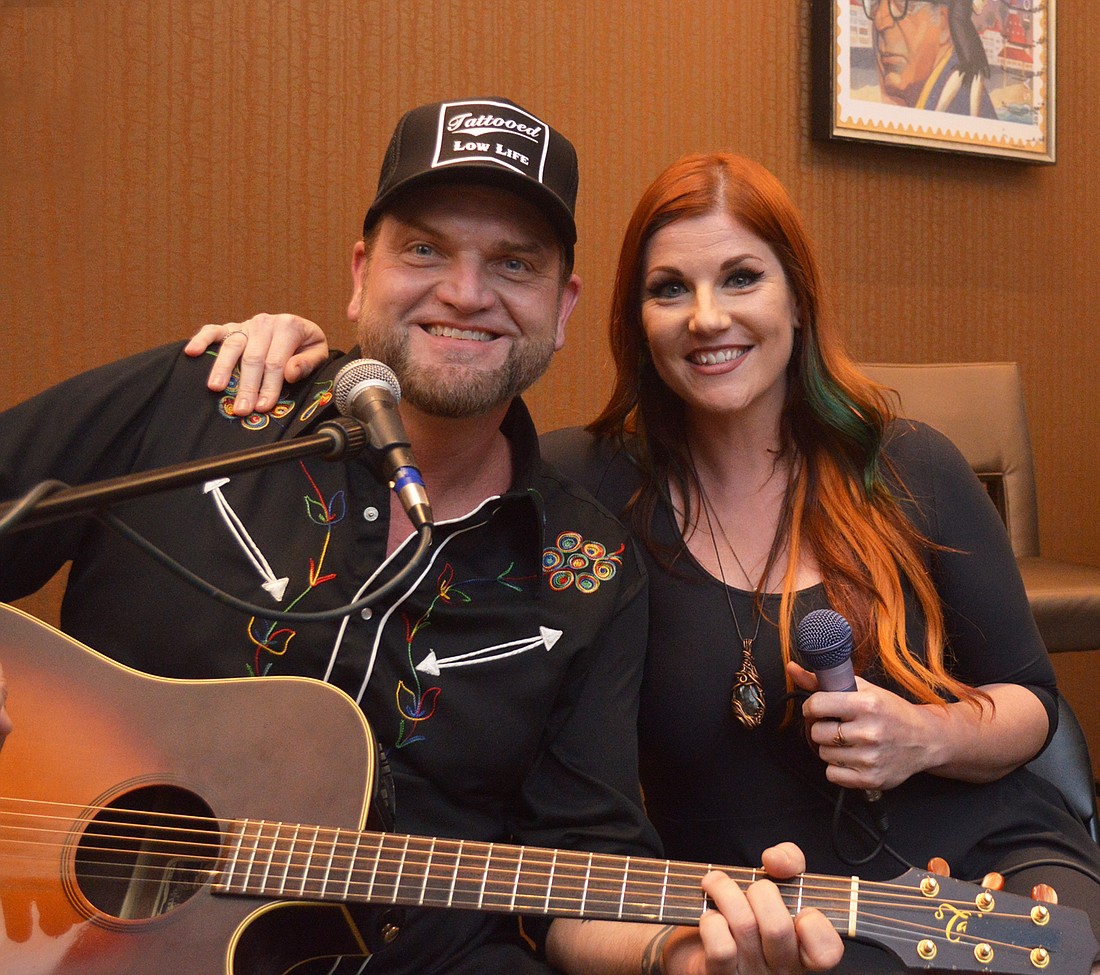- April 25, 2024
-
-
Loading

Loading

For a musician, losing your hearing is like a death sentence.
That’s why, when John McElroy lost his hearing in his right ear in 2009, the last thing he thought it would lead him to was a feature-length film.
McElroy, a local musician who has been in bands such as New Crash Position and performed at music festivals such as Livestock, had been playing ever since he was a teenager. When his doctor said to stay away from loud environments, he wasn’t sure what to do. That meant he couldn’t play the lively shows he used to, and he fell into a depression.
Eventually he started to see his situation from a different perspective.
“I still have one good ear,” McElroy says he told himself. “So I started writing songs and I started playing acoustic like I did when I was first learning to play.”
His writings turned out to be country-folk songs (unusual for a traditionally hard rock — with a dash of punk — artist) with his friend Randy Wright, and they turned into pieces about an unnamed man — until they started referring to him as Rocky Mountain Fast Guy, a moniker McElroy started playing under shortly before his sudden sensory hearing loss.
One night in 2012 the pair decided to work backwards from the name and explore the story of this man they kept writing songs about. The result was a movie script.
The end product is a film about a high-risk dreamer named Guy Montaine with musical talent passed down from his father. The singer-songwriter wants to travel to Nashville to make it big, but he’s also always dreamed of putting an end to the financial issues surrounding the maintenance of his family’s large Florida ranch. His winding, dysfunctional road to pursuing both dreams is the main arch of the plot.
McElroy took the finished script to Brett Jones, who would later become his co-director. Jones has worked on several other films, so McElroy trusted his opinion. Jones told him to produce the movie himself, and even though McElroy contested and toyed with the idea of selling it, he was eventually convinced.
Jones became his coach, helping the new writer, director and producer understand what it takes to make a film. Wheat Buckley came on as everything McElroy didn’t have the experience for — director of photography, editor, sound, most everything technology related.
McElroy didn’t have a full team yet, so he started going to Manasota Film Club meetings, introducing himself to other filmmakers and calling up anyone with skills he needed with whom had some degree of a connection. Eventually, he had a crew.
Another challenge was finding places to film for cheap. McElroy says it took many written proposals and some begging, but they ended up getting permission to film at local spots like the Sarasota County Jail, Manatee County Jail, Ace’s Lounge (since torn down), JR’s Old Packinghouse Cafe and many more.
“We tried to be very ambitious with a microbudget,” he says. “Saying Henry was going to be in the (jail) scene helped.”
That’s Henry as in Henry Lawrence, the former NFL player for the Oakland-Los Angeles Raiders from Palmetto who became a rhythm and blues-soul singer after retiring from professional sports.
The movie also features local artists Kelly Shaefer (of the international death metal band Atheist), Twinkle Yochim (Warner Bros. recording artist), Greg Pitts (“Office Space”), and other local actors like Tanya Honeycutt Christianson, Kathryn Parks, Mark Troy and more, most of whom McElroy reached out to personally after their casting call wasn’t as successful as he hoped.
McElroy was so determined to get the right actors, he started approaching people who fit the image he had in mind for his characters. Regardless of where he was in public, Cracker Barrel, 7-Eleven, etc., he’d swallow the awkwardness and ask them if they wanted to be in a movie.
“My wife was like, ‘I’m going to be in the car,’” he says with a laugh.
Although he didn’t plan on it, McElroy eventually casted himself as leading role Guy Montaine.
The film took more than five years to make because there were lulls between securing filming locations. The team would shoot one scene, McElroy would write a few more songs for the soundtrack and for his character to perform, and then he’d make changes to the script until he found a place to shoot his next scene.
“I wanted to see it completed,” he says. “I remember one friend said, ‘Oh, John’ like it was impossible, so those kinds of things drove me more.”
The film was last screened Nov. 8 at the American Advertising Awards Kick-Off. Before that it was shown at the Orlando Film Festival, Global Grit Film Fest and the Miami Independent Film Festival (monthly edition in April).
He’s excited to eventually share the full project on streaming services — a project that was more therapeutic than he imagined.
“Something that was tragic for me turned into a creative outlet,” he says.